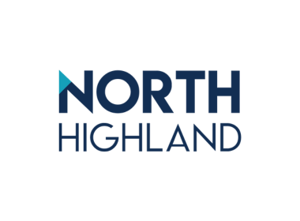Most organizations are going through some form of digital transformation. Whether it's modernizing core systems, automating marketing, migrating to cloud, or building AI/ML capabilities, a lot of investment is being made in areas to optimize outcomes.However, the risks associated with these investments is ensuring your people know how to operate in the new world without reverting to old behaviors. This is particularly true when it comes to data-driven decision making. Access to the best insights doesn't matter if people still make gut-based decisions the old way.So how do we improve data literacy, maximize our investments, and get the true digital acceleration we're looking for?
Let's start by defining data literacy: Data literacy is the degree of skill and capability an organization possesses that enables its workforce to make better business decisions through the application of data.
Data Literacy Challenges
The biggest challenge to improving data literacy is it's not owned by any one person or department. It's usually spread across three--business teams, data teams, and HR. Each with their own responsibilities to improving data literacy:
- Business teams – These people are responsible for translating data-driven behaviors into work and outcomes. They leverage tools and data to inform business decisions, and they own the improvement of analytics skills.
- Data teams – These teams are in charge of acquiring and providing clean data. They also give their colleagues the tools to access and consume this data, as well as usage guidelines.
- HR teams – The HR department is responsible for defining analytics competency models by role and level. They update the talent performance function to incorporate data literacy evaluation, and the talent acquisition function to effectively source analytics professionals. Plus, they provide internal and external analytics training through learning management systems and other initiatives.
With this fragmented ecosystem it's easy to see why data literacy lags other progress, hindering overall digital success.
So what do you do about it?
To ensure you can take action, North Highland has developed seven lenses of data literacy. These are your starting points from which to gauge your ability to boost data literacy.
Maturity in every one of these areas is essential in ensuring sustained progress:
- Data Governance –An organizational model that provides accountability for correct data
- Data Tools & Guidelines – A suite of tools to explore and create data insights, customized by user level
- Competency Models – Analytic competency models and skills frameworks by role and level
- Talent Acquisition – Competency models applied to talent acquisition
- Training – Ongoing training programs to constantly upskill and reskill
- Analytic Communities – Communities of like-minded data enthusiasts to learn and share
- Data Literacy Measurement – Defined and monitored metrics to continuously measure progress
How can you bring it all together?
While there's no one-size-fits-all solution, we have seen it work best when one organization is responsible, not for owning all the above elements, but for coordinating the advancement of the elements across the three organizational areas of business teams, data teams, and HR.
An Analytics Enablement Function
Establishing an Analytics Enablement team or function is a great way to advance data literacy. Serving as coordination point, it can work with business teams to define needed skills and help navigate them to the data tools they need; it can work with data teams to bring the business voice as well as understand new data, tools, capabilities that be coming online; and work with HR teams to formalize the expectations in career paths, recruiting functions, and training content. We commonly see these enablement teams tucked into existing business analytics teams that are already responsible for improving outcomes through data.
Finally, by centralizing the responsibility for data literacy into one area and creating living programs to advance it, an organization creates an always-on entrance ramp to improvement that works with everyone's timelines and skill levels and reduces the frustration and confusion teams often have in improving their ability to be data-driven and ultimately deliver on the promised value of digital transformation.
To find out more about North Highland’s data and analytics expertise, visit our services page or get in touch with a member of the team.




.png?width=300&name=NH%20web%20banners%20(31).png)

.png)
